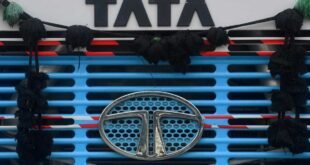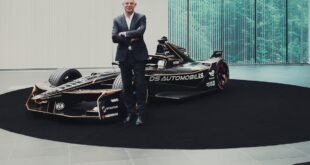The Barefoot Investor’s Concerns About Electric Vehicles
Scott Pape, known as the Barefoot Investor, has recently shared some thought-provoking insights about electric vehicles (EVs) in his newsletter. His concerns stem from a personal conversation with his father, who was unimpressed by the idea of switching to an electric car.
During a discussion about purchasing a new vehicle, Scott suggested that his father consider investing in a Tesla. He described how the Model Y, which recently rolled off the factory line, could drive itself 30 minutes to its new owner’s house without any human intervention. This development, he noted, would have surprised even Henry Ford, the founder of Ford Motor Company.
Scott humorously imagined what might happen if someone missed a payment on their EV. “If you miss a repayment, it’ll get a notification that you’re a deadbeat, turn itself on, open the garage door, and silently creep back to the showroom in the middle of the night,” he said.
However, his father wasn’t convinced. “Why would I want a bloody electric car?” he asked. This reaction is not uncommon, according to Scott. Many people are skeptical about EVs due to practical concerns such as where they can charge the vehicle, the cost of repairs, and the potential resale value in the future.
Despite government predictions that most people will be driving electric cars soon, the data tells a different story. In the last month, EVs accounted for just 10.3% of car sales, which, while a record high, still shows that adoption is slower than expected.
Scott warned that car manufacturers may continue to discount prices, leading to a decline in the value of used electric vehicles. He pointed out that China is flooding the market with cheap electric cars, which is likely to drive prices down further.
One example of this trend is BYD, the world’s largest EV manufacturer. Recently, BYD slashed its local car prices by 34% overnight, signaling a significant shift in the market dynamics.
According to Scott, while electric vehicles may seem like a responsible choice, they are still financial drains. “Cars have always been a terrible investment,” he said.
Reflecting on the changing landscape of the automotive industry, Scott shared how his own childhood was shaped by the rivalry between Ford and Holden. However, he believes that his children will grow up in a completely different environment.
“I’m convinced that, for my kids, cars will be like shopping for a TV at JB Hi-Fi: lots of weird-sounding Chinese brand names that get better and cheaper every year,” he said.
In essence, Scott sees the future of the car market as an “electric race to the bottom … with no one at the wheel.” This perspective highlights the challenges and uncertainties that come with the rapid evolution of the automotive industry.
 Info Malang Raya Its All About World News
Info Malang Raya Its All About World News



